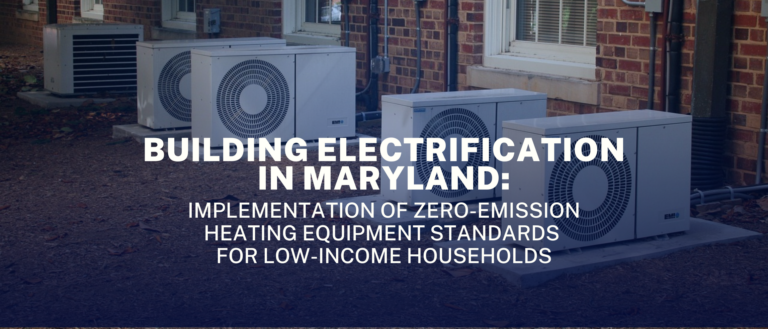After nearly five years of serving this amazing organization and its inspiring community of scholars, advocates, and activists, I’ll be stepping down as executive director of the Center for Progressive Reform. I believe strongly in our mission, and this was a difficult decision, yet it feels right.
I am confident that the Center’s role in the movement as committed scholars and fierce advocates will continue to expand in reach and impact. Protecting people and defending democracy is a daunting challenge in this political moment, and the Center has never been more needed.
My colleagues James Goodwin and Catalina Gonzalez will serve as interim co-executive directors during the transition. Currently, James is Policy Director, and Catalina is Senior Policy Analyst and Climate Justice Lead. As most of you know, they bring wisdom, stature, continuity, and fierce commitment to our cause. I leave with a deep sense of assurance that the organization is in strong and capable hands. My last day is this Friday (November 14).
I want to express my appreciation for the solidarity and kindness that so many have shown me on this journey. To have contributed to the climate justice movement and to have supported its defense through a rigorous application of administrative law has been a source of great pride for me, particularly as I was a novice in both five years ago.
Despite the setbacks in national leadership, the stirrings of a progressive future are evident. I depart with a great sense of hope and optimism and a deep bow of respect and fondness for my staff colleagues who are relentless in their pursuit of truth, justice, and a healthy planet.
It has been a privilege and joy to accompany you in this struggle for justice and ecological sanity. Please, let’s stay connected. Click here to find and add me on LinkedIn.
Showing 2,943 results

Minor Sinclair | November 12, 2025
After nearly five years of serving this amazing organization and its inspiring community of scholars, advocates, and activists, I’ll be stepping down as executive director of the Center for Progressive Reform.

James Goodwin | October 27, 2025
The current Trump administration has made individualized exceptions and waivers one of the signature features of its governing approach.

Federico Holm, James Goodwin | October 16, 2025
The Congressional Review Act (CRA) provides the U.S. Congress with an expedited procedure to review and potentially overturn final rules issued by federal agencies. Despite being touted as a critical avenue for congressional oversight, the CRA is often deployed as a partisan tool that replaces agency expertise and democratic consideration with political maneuvers and slim voting majorities. The use of the CRA in the current Congress so far has shown us how easy it is to misuse “resolutions of disapproval”—the specialized form of legislation it creates—both in numbers and the scope of its application.
Federico Holm | October 15, 2025
Since Day One, the Trump administration has aggressively pursued policy actions that match the recommendations contained in Project 2025. We have been tracking the administration’s actions since February, and our Executive Action Tracker (jointly maintained by the Center for Progressive Reform and Governing for Impact) highlights the speed and effectiveness with which the administration has advanced Project 2025’s goals.

Bryan Dunning, Christopher Stix | October 14, 2025
In the past year, Maryland residents have seen their heating bills skyrocket, which has largely been tied to increased costs of methane gas distribution. These costs are expected to worsen as increased spending on the distribution system must be repaid over the next several decades. At the same time, greenhouse gas emissions from burning fossil fuels in the home contribute substantially to climate change, and pollution from fossil fuel heating also has a substantial impact on residents’ health. In a new report published today, we explore policies designed to tackle these challenges and provide analysis and recommendations on how to make the transition to updated heating technologies and building electrification more equitable and effective for low-income Marylanders.

Minor Sinclair | October 7, 2025
The Presidential Memorandum (NSPM-7) on Countering Domestic Terrorism and Organized Political Violence released last week pushed the United States one step closer to a country where the right of freedom of speech and peaceful protest no longer exists.

Federico Holm, James Goodwin | September 15, 2025
To say that the policy priorities of the Trump administration represent a U-turn from the Biden administration is a severe understatement. The recent release of the long-awaited Spring 2025 Regulatory Agenda — the first of the current Trump administration — provides us with our first concrete picture of just how far the regulatory policy pendulum is going to swing. From climate and energy to public health, the current administration is systematically undermining important advancements achieved during the previous cycle.

James Goodwin | September 3, 2025
Public participation is a defining feature of the modern administrative state. One of administrative law’s functions is to ensure meaningful participation by relevant stakeholders. Importantly, as the public’s expectations of and demands for what participation mechanisms are meant to accomplish have evolved, policymakers and the courts have updated administrative law requirements and doctrines.

Catalina Gonzalez, James Goodwin | August 26, 2025
Last week, the Environmental Protection Agency (EPA) hosted four days’ worth of hearings to gather public testimony on its proposal to rescind the 2009 endangerment finding and the suite of existing greenhouse gas (GHG standards for cars and trucks that the finding supplies the legal justification for. The vast majority of the participants testified in strong opposition to the proposal, and included a broad cross-section of our society: faith leaders; a high school student; community organizers; and concerned grandparents.